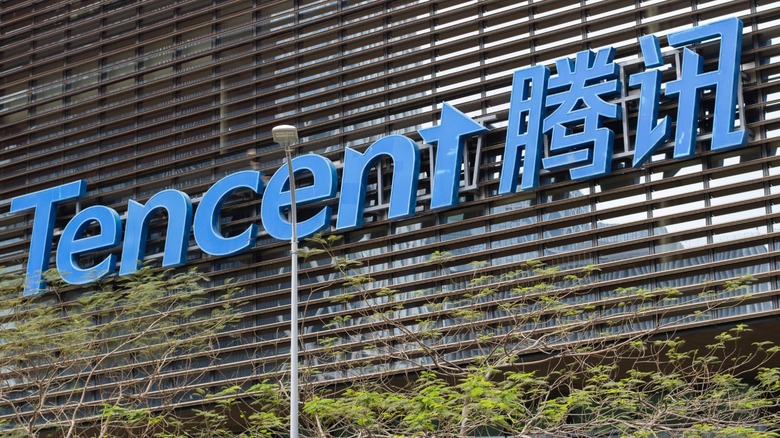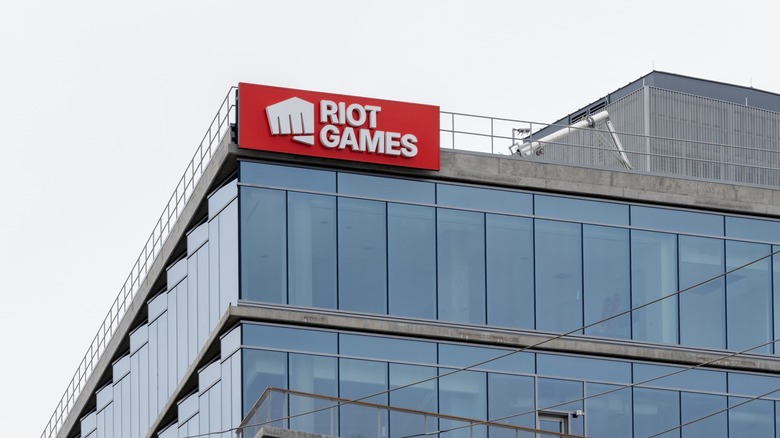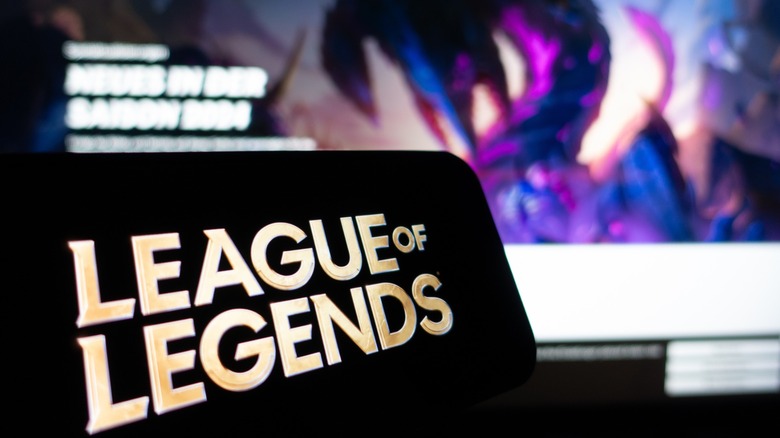The Popular Video Game Company That's Owned By China
Often, when people think about Chinese products and companies, they're minds go to ventures like Huawei and TCL for consumer tech or Temu and Shein for affordable goods and e-commerce. However, Chinese companies are increasingly holding more influential digital assets across multiple previously Western-dominated sectors. TikTok, through Bytedance, is a more popular example of a Chinese company holding considerable influence in one of the most used social media apps in America. When you consider that China has had a closed-off economy historically, an expansion into global digital services points at a deliberate and somewhat radical shift in strategy. There's a more hidden example in the gaming industry, and that's Tencent's ownership and development of "League of Legends" (LoL).
Tencent first started by acquiring a majority stake in the original publisher, Riot Games, in 2011 and then subsequently fully acquired it in 2015. This gave it total control of the world's most popular PC esports title by viewer hours, per Gamesight, and one of the most played PC games globally, with a player count of 131 million monthly active players in January 2025, according to Priori Data.
Tencent now also operates China's domestic top-tier LoL Pro League (LPL), invests heavily in esports infrastructure, and runs international tournaments, merchandise, and licensing. The game alone generates revenue usually between $1 to $2 billion yearly, and the "League of Legends" IP has expanded into a valuable multimedia franchise, with an Emmy-winning Netflix animated series ("Arcane"), other video game spin-offs, and multiple global music projects such as the virtual K-pop group K/DA.
Riot Games before Tencent's acquisition
Riot Games was founded by two University of Southern California graduates, Brandon Beck and Marc Merrill, in 2006. That means Riot Games was wholly American for only five years, suggesting that most of the company's history has been with its Chinese partner and eventual owner, Tencent. When it was founded, Riot Games had unusual goals for publishers at the time: focus on one title that's constantly updated and make it free to play. This was a time in the U.S. when most successful games were boxed sales, and $60 discs still dominated the shelves at GameStop.
Between 2006 and 2009, Riot pitched an online service game with recurring revenue to investors and raised about $7 million through venture capital. The money came from Benchmark Capital and FirstMark Capital, and it allowed the company to recruit developers from Blizzard and other top studios. Many early hires had experience on "World of Warcraft" and "Defense of the Ancients" (DotA), the "Warcraft III" mod that directly inspired "League of Legends."
When LoL launched in October 2009, the free-to-play, online service strategy immediately paid off. Within its first two years, Riot reported more than 1.4 million daily active players and over 15 million registered accounts worldwide, according to a 2011 GameSpot piece. Servers only managed to keep up, but the community kept growing thanks to Riot's constant patches and balance updates. In 2010, "League of Legends" cemented its spot among established titles, winning the Golden Joystick Award for Online Game of the Year.
Why Tencent came into the picture
Despite being a breakout hit by 2011, Marc Merrill told Mixergy in an interview that Riot faced challenges running servers for millions of players, keeping a live balance schedule, and expanding comfortably into esports. All of these required a lot more capital and infrastructure than a mid-sized American startup could easily afford. Its revenue mostly came from optional cosmetic items, which worked, but wasn't generating the kind of cash cushion needed to fuel global growth.
Tencent, on the other hand, was already one of China's richest companies, with annual revenue around $3 billion in 2010. Its core business is online services — instant messaging (QQ and Chinese "super app" WeChat), online advertising, and, most importantly, gaming. By 2010, games already accounted for a sizable chunk of Tencent's revenue. Tencent had the scale and technical infrastructure to run massive online titles in China, the largest gaming market in the world. Investing in Riot gave Tencent a way to import a Western hit into China, while also letting Riot access Tencent's operational expertise and money.
In February, Tencent bought a majority stake in Riot Games for over $350 million (per Bloomberg). Riot kept creative control, but gained a financial backer capable of stabilizing bigger operations and helping "League of Legends" expand globally, especially into China, which quickly became one of LoL's biggest markets. The partnership had proved so successful that Tencent acquired the remaining shares in 2015 and took full ownership. A decision that seems to have significant geopolitical ramifications in 2025, since the U.S. government has officially designated Tencent a Chinese military company on the Federal Register.


